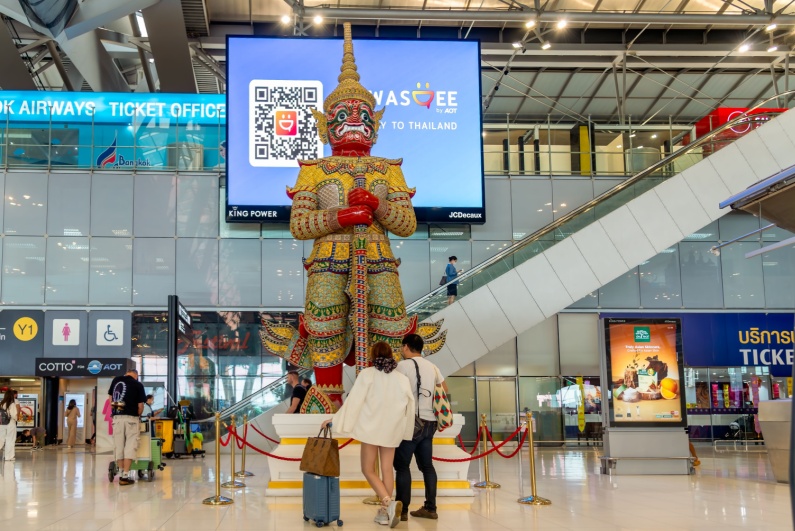Billionaires lining up
The removal of Thailand’s Prime Minister Srettha Thavisin in mid-August because of a bribery scandal has done little to affect the optimism of major investors hoping to cash in on the national plan to establish IR casino resorts in the country by 2027.
emboldened the interest of would-be IR casino suitors
Instead, an in-depth column in Asia Gaming Brief on Tuesday by former Genting and Hard Rock International executive Daniel Cheng, revealed the opposite to be true. The appointment to Prime Minister of Paetongtarn Shinawatra, daughter of casino-supporting former PM Thaksin Shinawatra has, over the past two weeks, emboldened the interest of would-be IR casino suitors.
Thaksin’s first public speech last week, in which he stressed the importance of the government prioritizing casino legislation, has opened the floodgates of interest. As Cheng noted, following the ex-PM’s dinner event speech, “a veritable row of Thai billionaires quickly formed as major conglomerates lined up for the lucrative entertainment complex licenses.”
Cheng stated that each suitor was on the Forbes list of Thailand’s richest people and that they are preparing IR projects from Bangkok to Phuket. One of the plans was unveiled last week by The Royal Turf Club of Thailand (RTCT) for a THB200bn ($5.8bn) IR casino project in the Thai capital, a move allegedly backed by the Thai royal family.
Opportunity knocks
An RTCT spokesperson told the media that its proposed The Royal Siam Haven complex will “cover a vast area” and include horse racing in addition to casinos. The spokesperson added that an investment partner has already signed a memo of understanding “with five foreign and four Thai partners.”
Five major international firms, namely Caesars Entertainment, Hard Rock International, Las Vegas Sands Corporation, MGM China Holdings Limited, and Wynn Resorts have all expressed interest in entering the IR race.
One of the Thai names recently linked to the IR project is Supaluck Umpujh. The business matriarch owns the Mall Group and hosted the ex-PM’s dinner talk at her firm’s flagship mall Siam Paragon.
reportedly mulling repurposing an existing mixed-use real estate project in the tourist hub of Phuket
Cheng cited Thai media reports stating Umpujh’s Mall Group plans to revamp a $1.5bn development currently going up in Bangkok’s Bang Na suburb to secure an IR license. The Mall Group is also reportedly mulling repurposing an existing mixed-use real estate project in the tourist hub of Phuket as an IR.
One of the first locations suggested for a Thai IR is the U-Tapao Airport and Eastern Airport City Project, an $8.5bn development awarded in 2020 to U-Tapao International Aviation Company (UTA). With 45% stock, Bangkok Airways is the largest shareholder in UTA, which is owned by business tycoon Prasert Prasarttong-Osoth, who ranks sixth on Thailand’s Forbes list.
According to Cheng, the Prasarttong-Osoth family’s holdings include Thailand’s biggest private hospital operator, BDMS. Ownership of the hospital business opens up the potential of a medical tourism-focused IR if UTA secures a license.
The third Thai entity making moves is led by two brothers who hold second spot on the Forbes list, after they built up a vast telecoms and food empire. The Chearavanont siblings’ Charoen Pokphand Group is eyeing an IR in Makkasan, which is in the heart of Bangkok.
Makkasan will be a major station on the high-speed rail link between U-Tapao, Don Mueang, and Suvarnabhumi Airports. Charoen Pokphand is building the project with the State Railway of Thailand as part of a $6.5bn “public-private partnership deal.”
Macau the inspiration
The interest shown by Thai billionaires in the IR opportunity stands in stark contrast to Japan, where private investors were cautious about casino investments. Japan’s caution means its first IR in Osaka is expected to open by fall 2030, whereas Thailand expects to open its first IRs in 2029, or by 2027 as ex-PM Thavisin had hoped for.
There is a huge appetite for gambling in Asia, with the success of Macau inspiring the likes of Thailand and Japan to enter the IR market. According to analysts, Macau’s GGR for August hit 81% of 2019s, its best performance since the COVID-19 closures.




